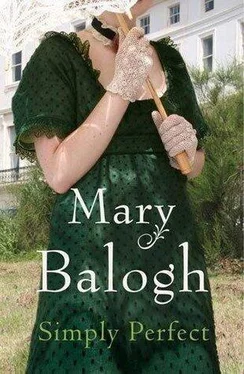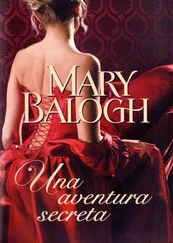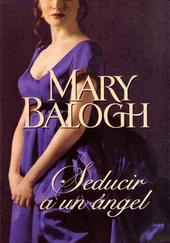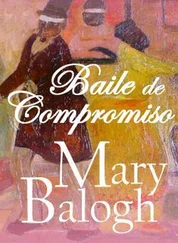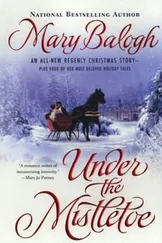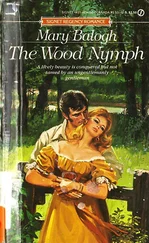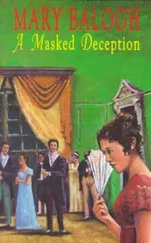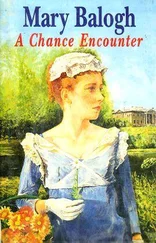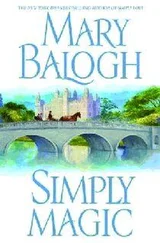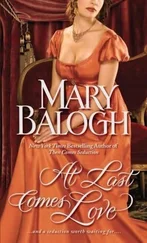Mary Balogh - Simply Perfect
Здесь есть возможность читать онлайн «Mary Balogh - Simply Perfect» весь текст электронной книги совершенно бесплатно (целиком полную версию без сокращений). В некоторых случаях можно слушать аудио, скачать через торрент в формате fb2 и присутствует краткое содержание. Жанр: Старинная литература, на английском языке. Описание произведения, (предисловие) а так же отзывы посетителей доступны на портале библиотеки ЛибКат.
- Название:Simply Perfect
- Автор:
- Жанр:
- Год:неизвестен
- ISBN:нет данных
- Рейтинг книги:3 / 5. Голосов: 1
-
Избранное:Добавить в избранное
- Отзывы:
-
Ваша оценка:
- 60
- 1
- 2
- 3
- 4
- 5
Simply Perfect: краткое содержание, описание и аннотация
Предлагаем к чтению аннотацию, описание, краткое содержание или предисловие (зависит от того, что написал сам автор книги «Simply Perfect»). Если вы не нашли необходимую информацию о книге — напишите в комментариях, мы постараемся отыскать её.
Simply Perfect — читать онлайн бесплатно полную книгу (весь текст) целиком
Ниже представлен текст книги, разбитый по страницам. Система сохранения места последней прочитанной страницы, позволяет с удобством читать онлайн бесплатно книгу «Simply Perfect», без необходимости каждый раз заново искать на чём Вы остановились. Поставьте закладку, и сможете в любой момент перейти на страницу, на которой закончили чтение.
Интервал:
Закладка:
When Joseph wandered into White’s Club the morning after his return from Bath, he found Neville, Earl of Kilbourne, already there, reading one of the morning papers. He set it aside as Joseph took a chair close to his. “You are back, Joe?” he asked rhetorically. “How did you find Uncle Webster?” “Thriving and irritated by the insipidity of Bath society,” Joseph said. “And imagining that his heart has been weakened by his illness.” “And has it?” Neville asked. Joseph shrugged. “All he would say was that the physician he consulted there did not deny it. He would not let me talk to the man myself. How is Lily?” “Very well,” Neville said. “And the children?” “Busy as ever.” Neville grinned and then sobered again. “And so your father believed that his health was deteriorating and summoned you to Bath. It sounds ominous. Am I guessing his reason correctly?” “Probably,” Joseph said. “It would not take a genius, would it? I am thirty-five years old, after all, and heir to a dukedom. Sometimes I wish I had been born a peasant.” “No, you don’t, Joe,” Neville said, grinning again. “And I suppose even peasants desire descendants. So it is to be parson’s mousetrap for you, is it? Does Uncle Webster have any particular bride in mind?” “Miss Hunt,” Joseph said, raising a hand in greeting to a couple of acquaintances who had entered the reading room together and were about to join another group. “Her father and mine have already agreed in principle on a match—Balderston was called to Bath before I was.” “Portia Hunt.” Neville whistled but made no other comment. He merely looked at his cousin with deep sympathy. “You disapprove?” But Neville threw up his hands in a defensive gesture. “Not my business,” he said. “She is dashed lovely—even a happily married man cannot fail to notice that. And she never puts a foot wrong, does she?” But Nev did not like her. Joseph frowned. “And so you have been sent back to make your offer, have you?” Neville asked. “I have,” Joseph said. “I don’t dislike her, you know. And I have to marry someone. I have been more and more aware lately that I cannot delay much longer. It might as well be Miss Hunt.” “Not a very ringing endorsement, Joe,” Neville said. “We cannot all be as fortunate as you,” Joseph told him. “Why not?” Neville raised his eyebrows. “And what will happen with Lizzie when you marry?” “Nothing will change,” Joseph said firmly. “I spent last evening with her and stayed the night, and I have promised to go back this afternoon before going to the theater this evening with Brody’s party. I’ll be escorting Miss Hunt there—the campaign begins without delay. But I am not going to neglect Lizzie, Nev. Not if I marry and have a dozen children.” “No,” Neville said, “I cannot imagine you will. But I do wonder if Miss Hunt will object to spending most of her life in London while Willowgreen sits empty for much of the year.” “I may make other plans,” Joseph said. But before he could elaborate on them, they were interrupted by the approach of Ralph Milne, Viscount Sterne, another cousin, who was eager to talk about a pair of matched bays that were going up for auction at Tattersall’s. Joseph had accepted his invitation to attend the concert on Grosvenor Square by the time he escorted Miss Hunt to the theater that evening. He was related to neither Whitleaf nor his wife, but he had long ago accepted them as cousins of a family that embraced more members than just his blood relatives. Certainly he felt that he ought to attend any entertainment to which they had been obliging enough to invite him. He wanted to attend also because he had heard good things about the singing voice of the Countess of Edgecombe and welcomed the opportunity to hear it for himself. He wanted to attend because Lauren—Viscountess Ravensberg, his cousin of sorts—upon whom he had called after leaving White’s, had told him that she and Kit would be there as well as the Duke and Duchess of Portfrey. Elizabeth, the duchess, was another almost-relative of his. He had always thought of her as an aunt though she was in fact the sister of his uncle by marriage. He wanted to attend because Neville’s wife, Lily, who had also been visiting Lauren, had invited him to dinner before the concert. And he was to attend, he discovered during the course of the evening, despite the fact that Portia Hunt was not. It was regrettable, he supposed, but unavoidable under the circumstances. During one of the intervals between acts of the play, Miss Hunt asked him if he was going to Lady Fleming’s soiree a few evenings hence. There was something quite new in her manner toward him, he had realized all evening—something rather proprietary. Clearly her father had spoken with her. He was about to reply in the affirmative when Laurence Brody interjected with a question of his own. “You are not going to the Whitleaf concert on that evening, then, Miss Hunt?” he asked. “I have heard that everyone is going there. Lady Edgecombe is to sing and the whole world is eager to hear her.” “Not the whole world, Mr. Brody,” Portia said with controlled dignity. “I am not eager to go, and neither is my mother or any number of other people of good taste whom I could name. We have already accepted Lady Fleming’s invitation. I expect to find superior company and conversation at her soiree.” She smiled at Joseph. He could have kicked himself then. Of course she would not be going to the concert. The Countess of Edgecombe was married to the man Portia had firmly believed for most of her life she was going to marry. It was during the days and weeks following the ending of that relationship that he, Joseph, had first befriended her. “I regret that I must miss the soiree, Miss Hunt,” he said. “I have already accepted my invitation to Lady Whitleaf’s concert.” He would have refused his invitation if he had remembered—as he ought to have done—that connection between the Edgecombes and Miss Hunt. And she was clearly not pleased with him. She was very quiet for the rest of the evening, and when she did speak, it was almost exclusively to other members of the party. He arrived on the appointed evening with Lily and Neville and paid his respects to Whitleaf and Susanna. The ballroom, he could see, was already filling nicely. The first person he saw when they stepped inside was Lauren, who had a smile on her face and an arm raised to attract their attention from the other side of the room. Kit was with her as were Elizabeth and Portfrey. And Miss Martin. He had thought of the schoolteacher a number of times since his return to town. He had liked her more than he had expected to during the journey to London. She was prim and straightlaced and severe, it was true, and independent to a fault. But she was also intelligent and capable of dry humor. But he had thought of her mainly for other reasons. He intended to have another talk with her before she returned to Bath, though tonight was probably not the right time for that. She was smartly dressed in green muslin, he noticed. Her hair was styled a little more becomingly than it had been at the school or on the journey to London. Even so, anyone looking at her this evening could surely not mistake her for anything other than what she was—a schoolteacher. It was something to do with the discipline of her posture, the sternness of her expression, the total absence of frills or curls or jewels about her person. As he approached with Lily and Neville, she turned to see them come. “Lily, Neville, Joseph,” Lauren said as they joined the group, and there followed a flurry of greetings and handshakes and kisses on the cheek. “Have you met Miss Martin? These are the Countess of Kilbourne, Miss Martin, and my cousins, the Marquess of Attingsborough and the earl.” “Miss Martin?” Neville smiled and bowed. “I am delighted to meet you, Miss Martin,” Lily said with her customary warm smile as Miss Martin inclined her head and bade them all a good evening. “We have already met,” Joseph said, extending a hand for hers and remembering that the last time he did so he had committed the faux pas of kissing it. “I had the pleasure of escorting Miss Martin up from Bath a week ago.” “But yes, of course,” Lauren said. “I have not set eyes on you since then, Joseph,” Elizabeth said. “How is your father?” “Considerably better, thank you,” he said, “though he chooses to believe otherwise. He is certainly fit enough to grumble about everyone and everything. My mother, meanwhile, appears to be enjoying Bath society.” “I am delighted to hear it,” Elizabeth said. “I know she was disappointed not to be coming up to town this year.” “Miss Martin,” Portfrey said, “both the Countess of Edgecombe and Lady Whitleaf were once teachers at your school, I understand?” “They were,” she said. “I still mourn their loss. However, I am exceedingly proud of my present staff of teachers.” “Christine tells us,” Kit said, speaking of the Duchess of Bewcastle, “that Miss Thompson is very happy there.” “I believe she is,” Miss Martin told him. “She was clearly born to teach. My girls love her and learn from her and obey her without question.” “I am fascinated by the idea of a girls’ school,” Lily said. “I must talk with you about it sometime, Miss Martin. I have a hundred questions to ask.” “All of which must wait, my love,” Neville said. “I believe the concert is about to begin.” “We should take our seats, then,” Elizabeth said. “Would you care to sit beside me, Miss Martin?” Joseph asked. But she was looking suddenly prim and severe again, he could see. “Thank you,” she said, “but there is something I must go and attend to.” He took a seat beside Lauren and prepared to be entertained. The Countess of Edgecombe was not the only performer, he had learned, though she was certainly the main attraction. He was about to make some remark to Lauren when he became aware that Miss Martin had taken only a few steps away into the center aisle and was now standing rooted to the spot, looking as if she might have seen a ghost. He got hastily to his feet again. “Miss Martin?” he said. “Do you feel unwell? May I—” “No,” she said. “Thank you. I will sit beside you after all, though, if I may. Thank you.” And she sat hastily on the empty chair beside his and bowed her head. She clasped her hands in her lap, and he noticed that they were shaking slightly. Now this was strange, he thought, coming from a woman who did not seem to be the vaporish sort. But it was impossible to know what had happened to discompose her, and she offered no explanation. “Have Miss Wood and Miss Bains been safely delivered to their new employers?” he asked her, hoping to distract her mi nd from whatever it was that had upset her. She looked blankly at him for a moment. “Oh. No,” she said. “Not yet. Mr. Hatchard, my man of business, has been out of town. He returned today, though, and sent word to inform me that I may call upon him tomorrow.” Some color was returning to her cheeks. She straightened her shoulders. “And have you been well entertained in the meantime?” he asked. “Oh, yes, indeed,” she said without elaborating. But the concert was about to begin. Whitleaf had moved to the front of the room and was standing on the low dais that had been set up for the performers so that they would be visible to everyone in the ballroom. There were some shushing sounds from the audience and then silence. The concert began. Joseph was impressed by the high caliber of the performances. There was a recital by a string quartet, a series of offerings by a young baritone who was engaged to sing in the opera house in Vienna during the autumn, and a pianoforte recital by the lame, dark-haired Countess of Raymore, who was a celebrity in her own right and whom Joseph had heard with enjoyment on other occasions. She also sang a melancholy folk song to her own accompaniment in her lovely contralto voice. And then, of course, there was the Countess of Edgecombe, whose soprano voice was rich and full, though she soon proved that she could hit some incredibly high notes. He could easily understand what all the fuss was about. Getting to his feet with the rest of the audience to coax an encore out of her with the volume of their applause after she had finished, Joseph realized that he would have been deprived of one of life’s great aesthetic experiences if he had gone to the soiree instead of coming here. Also, of course, he was interested to see in action the woman who had supplanted Portia Hunt in Edgecombe’s affections. He had set eyes on her before, it was true, but he had not appreciated her exquisite beauty until tonight, when her narrow, expressive face was lit from within and her very dark hair gleamed in the candlelight. By the time the countess had finished her encore, Miss Martin had her hands clasped very tightly together and was holding them beneath her chin. Her eyes glowed with pride and affection. The teachers at her school really had done rather well for themselves in the matrimonial market, he thought. It must be a very good school indeed to attract such charm and talent onto its staff. Miss Martin’s eyes were brimming with unshed tears when she turned to look behind her, perhaps to share her joy with Susanna. Joseph turned toward her, intending to invite her to join his family group for the refreshments that were to be served in the supper room. But she grasped his arm suddenly before he could make the offer and spoke urgently to him. “There is someone coming this way with whom I do not wish to speak,” she said. He raised his eyebrows. Most of the audience was dispersing in the direction of the supper room. But there was indeed one man making his way against the flow, obviously heading in their direction. Joseph knew him vaguely. He had met him at White’s. The man had arrived recently from Scotland. McLeith—that was the name. He held a Scottish dukedom. And Miss Martin knew him—but did not wish to speak with him? This was interesting. Did this have anything to do with her earlier perturbation? he wondered. He set a hand reassuringly over hers on his arm. It was too late to whisk her out of the man’s way.
Читать дальшеИнтервал:
Закладка:
Похожие книги на «Simply Perfect»
Представляем Вашему вниманию похожие книги на «Simply Perfect» списком для выбора. Мы отобрали схожую по названию и смыслу литературу в надежде предоставить читателям больше вариантов отыскать новые, интересные, ещё непрочитанные произведения.
Обсуждение, отзывы о книге «Simply Perfect» и просто собственные мнения читателей. Оставьте ваши комментарии, напишите, что Вы думаете о произведении, его смысле или главных героях. Укажите что конкретно понравилось, а что нет, и почему Вы так считаете.
